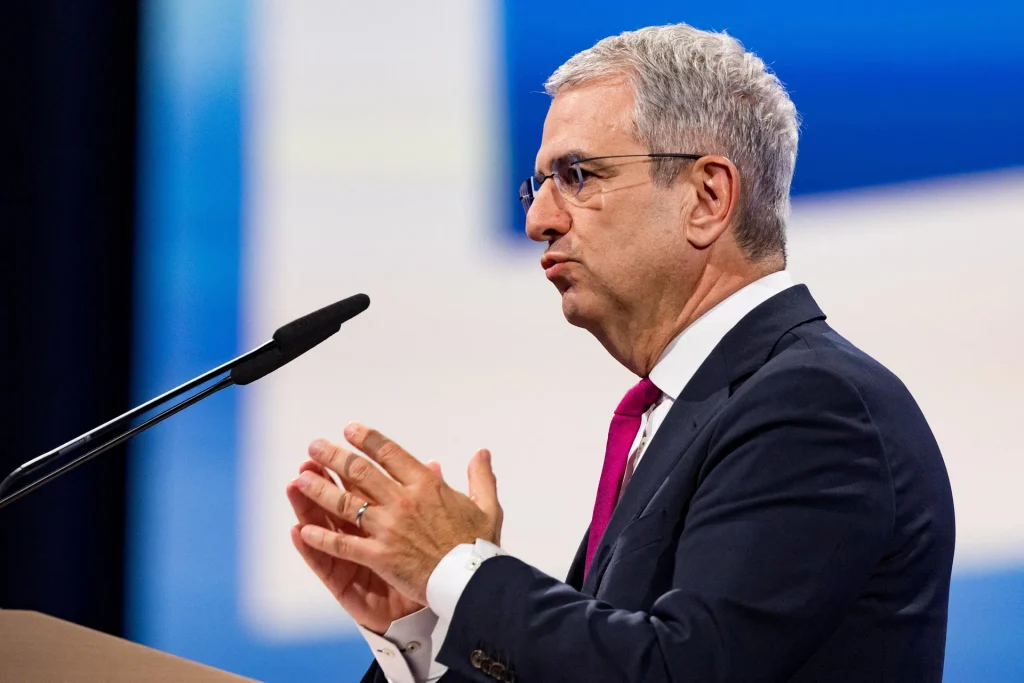IT IS the stuff of boardroom nightmares.
Nestle fired CEO Laurent Freixe on Monday (Sep 1) after an internal probe revealed an undisclosed romantic relationship with a direct subordinate. After nearly four decades at Nestle, he lasted only a year in the top job.
This is not how it was supposed to go: Freixe was intended to be a return to the old Nestle. His predecessor, Mark Schneider, had ruffled feathers at the insular and conservative consumer giant with his direct leadership style. Freixe told the Financial Times earlier this year that Schneider – only the second outsider CEO in the company’s history – had “weakened the fabric of the organisation”.
Instead, he has created a crisis that Nestle’s board is trying to counter by signalling that it’s on top of governance and succession planning.
Rather than appoint an interim chief, as so many companies do after an abrupt CEO departure, Nestle immediately tapped long-time insider Philipp Navratil for the job. The board likely had Navratil in mind as an eventual CEO candidate, having last October named him to the executive board.
The move is meant to broadcast that everything at Nestle remains business as usual; Navratil said as much in a press release: “I fully embrace the company’s strategic direction, as well as the action plan in place to drive Nestle’s performance.”
BT in your inbox

Start and end each day with the latest news stories and analyses delivered straight to your inbox.
But more of the same is not a safe bet for Nestle. There’s a big risk that comes with maintaining the status quo at a company whose stock has lost almost a third of its value over the past five years; nearly half of the decline came on Freixe’s watch. Continuity is great when times are good, but that’s far from the case at Nestle as it contends with slowing sales.
Navratil may very well be the right person for the job and surprise investors with a willingness to shake things up. But that’s not the message Nestle’s board is sending with its choice, nor is it the licence it seems to be giving its new CEO.
It’s obvious why Nestle wants a risk-free CEO amid the chaos – too bad such a thing doesn’t really exist, as Freixe has just conveniently reminded us. The board first got wind of his relationship with a subordinate through an internal company hotline.
Freixe initially denied the relationship, according to Reuters, with the board’s first investigation proving inconclusive. But the allegations did not die down, and a second investigation with an external counsel confirmed them.
The board had no choice but to fire him. This isn’t about what Semafor has labelled “corporate prudishness”, or the idea that companies have become overly squeamish about CEOs having consensual relationships with employees.
Freixe broke company policy and tried to mislead the board in the aftermath. As I’ve written ad nauseam amid a string of CEOs getting busted for bad behaviour, boards are increasingly considering what these ethical lapses say about what other rules an executive might be willing to bend.
“We know that boards see these kinds of relationships, especially extramarital, as signs that the operation of the organisation isn’t tight,” University of New Haven psychology professor Amy Nicole Baker told me last year when Norfolk Southern ousted then-CEO Alan Shaw for violating its policies by having a consensual relationship with the company’s chief legal officer.
“It’s not necessarily about values. This is a signal to the board that there could be other issues.”
The board did the right thing in decisively ousting Freixe. But it did not learn the larger lesson: The safe choice is not always what you think it is. And in its rush to get back to the “boring predictability” of Nestle’s past, it missed a chance to seek out a welcomed surprise instead. BLOOMBERG


